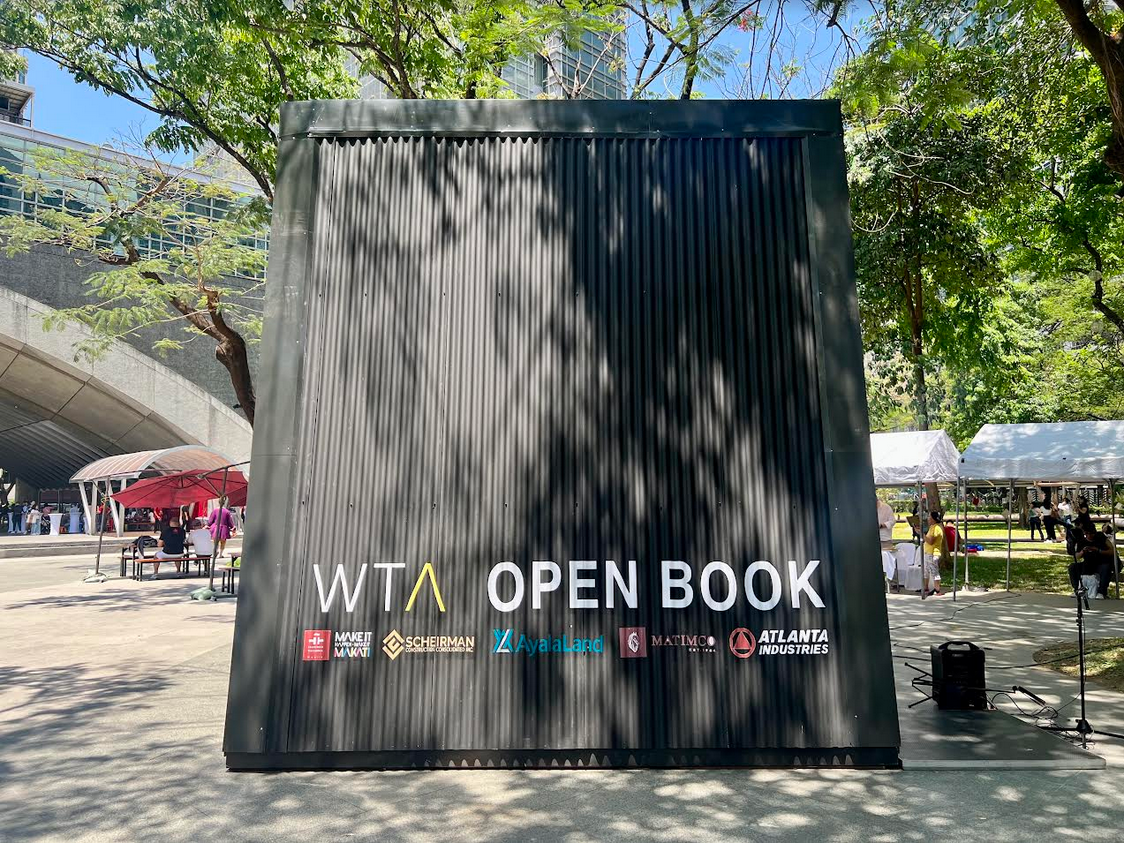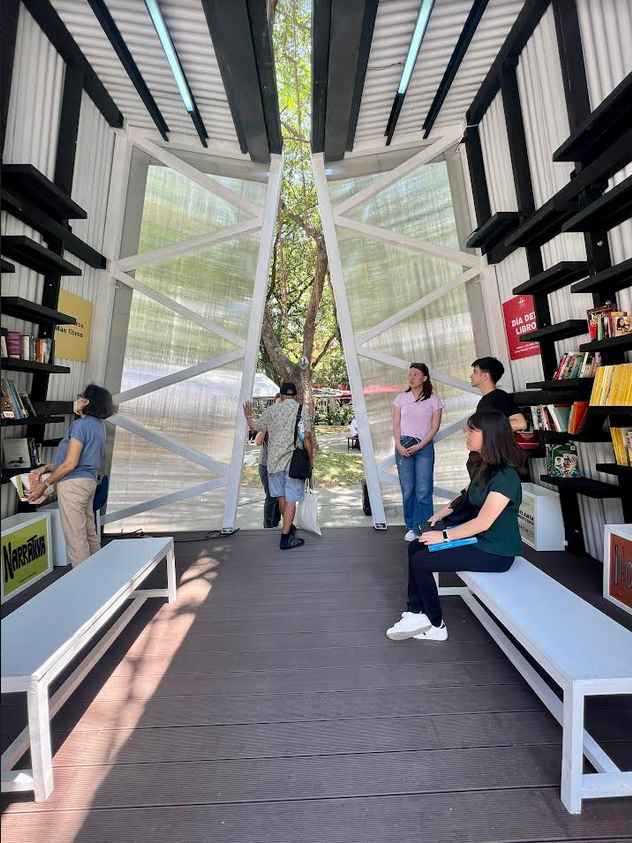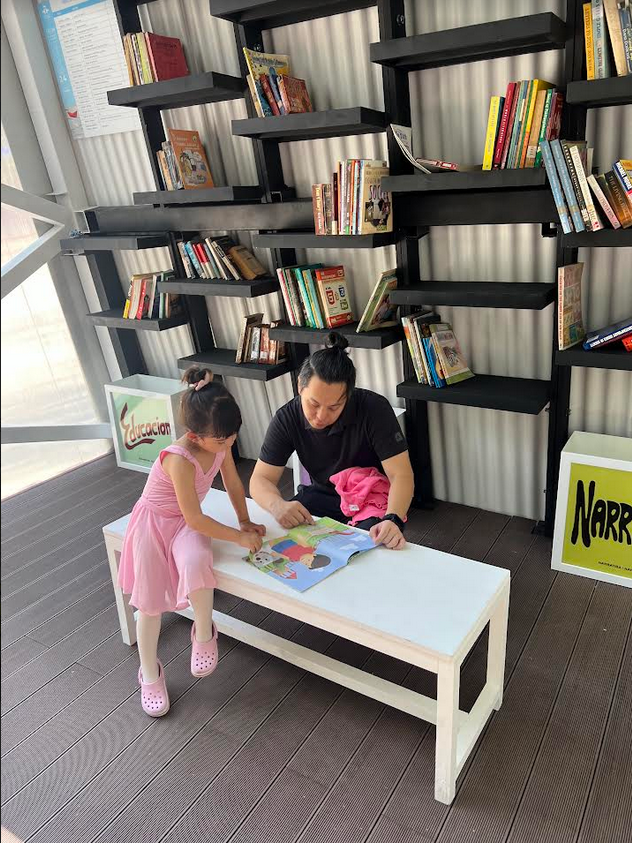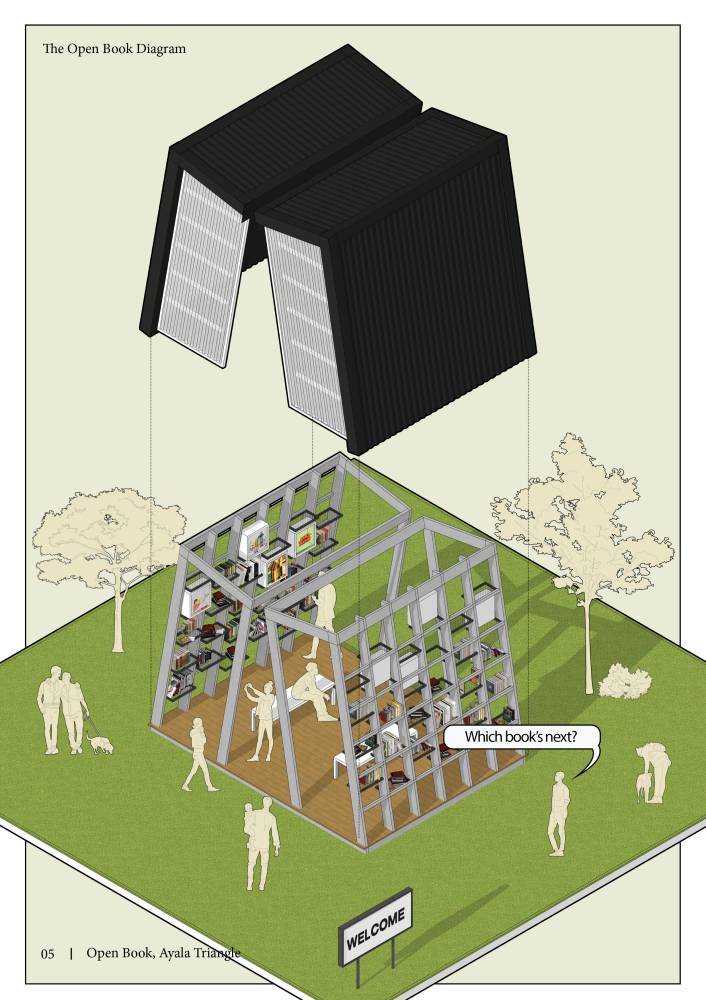The Book Stop: Reimagining the library for our modern world

Books have been cherished throughout history for their ability to transcend time, carrying stories from one generation to the next and serving as wellsprings of creativity and invention. Central to this legacy are libraries, the custodians of knowledge and the catalysts for community development and civic engagement.
However, in the digital age, the relevance of libraries has come under question. Are they still useful in a world dominated by social and web media? How can we activate public spaces to make them more valued by society? Should libraries be phased out, or can their architecture be evolved to better suit the needs of contemporary society?
Compelling answer
The Book Stop Project offers a compelling answer to these questions. It reframes the essence of a library as not just a repository of books, but also as a space for human interaction, learning, and community engagement. Unlike traditional monolithic library buildings, The Book Stop Project is a network of spaces strategically dispersed throughout the city, designed to attract a diverse range of people.
In recognizing the prevalence of online media and book sites, The Book Stop does not challenge the purpose of libraries but rather rethinks their physical architecture and distribution systems. It prioritizes casual serendipity and ease of access, fostering a dynamic environment conducive to exploration and interaction.

At its core, The Book Stop Project serves as an essential network of communal spaces aimed at engaging contemporary users, promoting reading among future generations, and galvanizing communities through events and shared ideas. It fulfills three distinct functions: a social component, a research component, and a program prototype component.
Socially, The Book Stop creates a platform for fostering community interaction and dialogue. By activating public spaces with high pedestrian traffic, it serves as a redistribution point for old books, facilitating the open and free exchange of ideas among individuals. Its size and flexibility allows it to reach underserved areas, responding to local issues and creating opportunities for civic discussion and community development.
As a research tool, The Book Stop gathers data on the demand for public libraries in this day and age, informing policymakers and planners about how libraries can make the most impact. This data-driven approach ensures that libraries are strategically located to serve the needs of their communities effectively.
Fourth iteration
The WTA Open Book library at Ayala Triangle is the fourth iteration of The Book Stop Project, with the first one opening at Ayala Triangle and then donated to the Intramuros Administration in Plaza Roma. The second Book Stop was at the CCP complex, while the third is The Book Nook at SM Aura. The latest Open Book library is funded by Ayala Land and will be actively managed by Instituto Cervantes.

Each iteration of the Book Stop has given us valuable information on how we can reimagine today’s libraries. Libraries need to be convenient and accessible for everyone and be a visible part of our daily lives. Libraries with unrestricted access allow us to better serve the public and attract the presence of younger visitors and children. The caretaker organization needs to be active organizers of community events and to vigorously encourage the exchange of books and maintenance of the facility. Finally, a network of libraries, no matter the size, can better serve as knowledge centers than a massive comprehensive one.
The WTA Open Book is a 4x5m space that houses two leaning blocks on a platform designed as a giant open book. The two blocks open up to create a passageway for visitors without any barriers. The skeletal steel structure by Scherman Construction creates a robust and scalable modular framework. The platform is made from Matimco wood plastic composite planks that allow us to clearly delineate the library space. The steel frames are enclosed in PVC sheets by Atlanta, providing durable protection and insulation against the heat and rain. The front panels are clear polycarbonate sheets that allow for public visibility and surveillance of the library interiors.
Frictionless access
More than just a physical space, The Book Stop represents an idea—a gateway facility that allows for frictionless access to knowledge and encourages a system of free and non-binding sharing. It embodies the concept of books and knowledge as open and transparent, reinforcing the value of community engagement and lifelong learning.

The Book Stop Project is a critical urban initiative project of WTA’s Social Architecture concept and offers a compelling vision for the future of libraries in contemporary urban societies. By reimagining library spaces and distribution systems, it demonstrates how libraries can remain relevant and impactful in an ever-changing world. As society continues to evolve, initiatives like The Book Stop will play a crucial role in shaping the future of libraries in the Philippines.
We invite you to come visit the WTA Open Book at Ayala Triangle Gardens from 6am to 10pm. Follow us on Facebook and Instagram @TheBookStopPH. Help support the library by donating your old books. You can place them on the shelves yourself or have them delivered to Instituto Cervantes at the Ground Floor, Ayala Tower One from 9am to 3pm. Attn Jose Maria Guardiola. Contact Toni at 09541545041. Let’s build back our library system one step at a time. Give a book. Get a book.
Design exploration requires the input of everyone in our community. We invite everyone to come join our explorations on the human environment. Join us on Instagram @wtadesignstudio and @entrari.

















